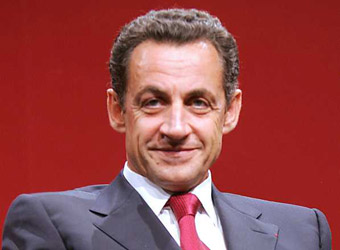A French judge has ordered ex-President Nicolas Sarkozy to stand trial in an illegal campaign finance case.
Mr Sarkozy faces accusations that his party falsified accounts in order to hide 18 million euros (£15 million; $20 million) of campaign spending in 2012.
Sarkozy has repeatedly denied that he was aware of the overspending.
He lost the 2012 race to Francois Hollande, and failed in his bid to run again in this year’s upcoming presidential election.
The case is known as the Bygmalion scandal.
It centres on claims that Sarkozy’s party, then known as the UMP, connived with a friendly PR company to hide the true cost of his 2012 presidential election campaign.
France sets limits on campaign spending, and it is alleged the firm Bygmalion invoiced Sarkozy’s party rather than the campaign, allowing the UMP to exceed the limit.
Employees at Bygmalion have admitted knowledge of the ruse and several UMP members already face charges.
Mr Sarkozy’s court case is expected to focus on whether the ex-leader was aware of the alleged fraud.
Thirteen other people are also expected to be tried.
However, judicial sources say an appeal could be launched against the trial order, because it was only made by one of the two judges handling the case.
The development comes as other French politicians have faced questions over their financial dealings.
Francois Fillon, who beat Sarkozy to become the centre-right’s candidate for the presidential race, is accused of misusing public funds to employ his wife and two children.
Meanwhile, the European Parliament is demanding France’s far-right leader Marine Le Pen return funds it says she has misspent, by paying an aide at the National Front party’s headquarters in Paris.
Sarkozy is the second French president to be put on trial since 1958, when the current French republic was established.
Former leader Jacques Chirac was given a two-year suspended prison sentence in 2011 for diverting public funds and abusing public trust.
Nicolas Sarkozy:
•Son of a Hungarian immigrant and French mother of Greek-Jewish origin; grew up in Paris
•Began his political career as mayor of the affluent Paris suburb of Neuilly from 1983 to 2002
•Nicknamed president “bling-bling” by critics for his flashy leadership style
•As president, pushed through reforms including raising the retirement age from 60 to 62 and relaxing the 35-hour working week.
Source: BBC


